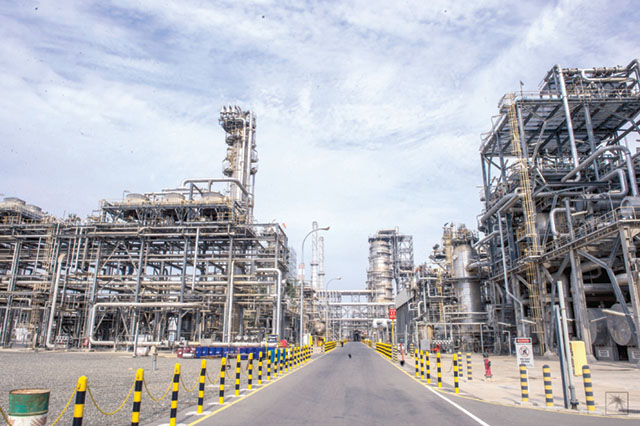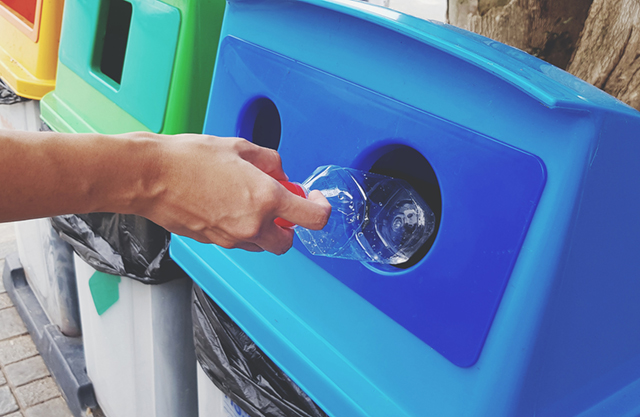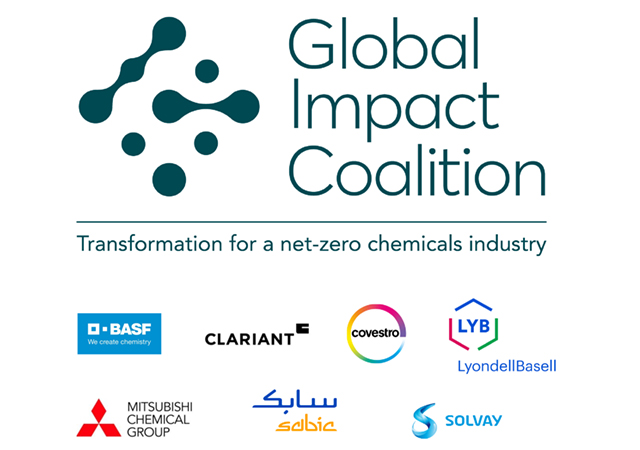

By ABDULAZIZ KHATTAK
A recent report on the business of plastics recycling has cast doubts on the efficiency of the process overall but more so on the chemical—so-called ‘advanced’—recycling in particular.
The ‘Chemical Recycling: A Dangerous Deception’ report reviews the lack of success of advanced recycling of plastics waste by recounting case studies of existing facilities, which it says does not produce optimism about the industry’s potential for success with this approach in addressing its solid waste problems.
The report is the work of Beyond Plastics, an advocacy organisation that works to end plastic pollution through policy change, and IPEN, a global NGO working to reduce and eliminate the harm to human health and the environment from toxic chemicals.
It aims to address the plastic industry’s claims that chemical recycling can play a significant role in reducing global plastic pollution, and adds such claims would in fact support expansion of plastic production, while potentially causing unacceptable levels of environmental and social harm — as well as impacts on human health — through emissions, waste generation, energy consumption, and contaminated outputs.
In the foreword to the report, Lewis Freeman, former Vice President of Government Affairs for the Society of the Plastics Industry, says: "Despite knowing that plastic recycling couldn’t realistically manage a significant amount of plastic waste, companies spent millions of dollars convincing the public otherwise. Today, less than 10 per cent of plastic is actually recycled, leading to public confusion and yet another PR issue for the industry.”
CHEMICAL—‘ADVANCED’—RECYCLING
More recently, the plastics industry has begun promoting what it calls ‘advanced recycling;, which the industry defines as turning “used solid plastic into its gas or liquid raw materials to be remade into brand new plastic for use in virtually any plastic product or packaging”.
The industry says the “plastics recycling industry is investing heavily in these technologies as part of efforts to meet the goal of reusing, recycling, or recovering 100 per cent of plastic packaging in the US by 2040”.
Chemical recycling is not new or advanced, as it is based primarily on technologies such as pyrolysis and gasification that have struggled technically and commercially to process such wastes for decades.
The majority of the output is not feedstock for new ‘circular’ or ‘green’ plastic but petrochemical fuels that will be burned, creating toxic emissions and emitting greenhouse gases.
Every step of these technologies is expensive, polluting, and energy-intensive, from pretreatment and thermal processes to output cleanup.
Many chemical recycling companies use fossil fuel energy to turn petrochemical-based plastics back into fossil-derived fuels to burn, creating a polluting, carbon-intensive merry-go-round.
US government researchers have concluded that the economic and environmental impacts of pyrolysis and gasification are likely to be 10 to 100 times higher than those of virgin polymer production, casting serious doubt on the environmental credentials of the sector.
A September 2023 report by the Nordic Council of Ministers casts further doubt on the relevance and contribution of chemical recycling to the management of plastic waste into the future.
The report models the impact of 15 potential global policy interventions on plastic pollution through 2040.
It concludes that, at best, chemical recycling will only recycle 15.4 million tonnes of plastic waste in 2040 — a mere 3 per cent of all plastic waste generated.
The report raises significant concerns about the risks and uncertainty associated with chemical recycling, including impacts on human health; greenhouse gas and toxic emissions; and discharges containing hazardous chemicals. It also raises concerns about substances of concern from chemical recycling feedstock being reintroduced into its outputs.
The 2023 Conference of the Parties of the Basel Convention, the leading global body on hazardous waste management and regulation, adopted guidance on how the world should manage plastic waste.
The world’s leading experts on the subject declined to include chemical recycling in the guidance, as no evidence demonstrated it is environmentally sound management (ESM).
In the current market, the price of most recycled plastic cannot compete with that of virgin plastic due to cheap and abundant oil, cheap fracked gas, and the enormous economies of scale of the petrochemical industry.
The majority of recycled plastic — that which is generated by residential curbside recycling programmes — is of low quality and low value, and is often downcycled into products that cannot themselves be recycled.
The petrochemical industry is working hard to convince policymakers that production cuts are not needed and that we can catch up with plastic pollution by throwing massive public and private resources behind technologies with a long history of underperformance, failures, and bankruptcies.
KEY FINDINGS
The ‘Chemical Recycling: A Dangerous Deception’ report calls chemical recycling a false solution to plastic pollution, and says “it has failed for decades, continues to fail, and there is no evidence that it will contribute to resolving the plastics pollution crisis”.
It also says plastics, which are inherently risky to recycle, are made with toxic chemicals and when recycled, these chemicals go into the recycled plastic or product.
Toxic chemicals can also be created in recycled plastics from cross contamination and heating, resulting in ongoing and often increased chemical threats to our health and the environment.
The report states chemical recycling is inefficient, energy-intensive, and contributes to climate change.
“According to US government researchers, the energy needs (derived from plastic waste itself or additional fossil fuels) of chemical recycling can create as much as 100 times more damaging environmental and climate impacts than virgin plastic production,” it says.
Furthermore, chemical recycling creates large amounts of toxic waste. Regardless of what products facilities are attempting to create, chemical recycling — at best — produces small amounts of usable products from large amounts of plastic waste.
Typically, most of the plastics going into chemical recycling facilities will become waste (often hazardous waste), be burned as fuel, or be landfilled.
Additionally, chemical recycling facilities release toxic emissions, create hazardous waste, and are prone to fires and explosions.
Another finding of the report is that chemical recycling will not supplement conventional (mechanical) recycling.
“Proponents say chemical recycling is needed for mixed plastics that are difficult to recycle mechanically, but there is no evidence that chemical recycling can economically or effectively recycle mixed plastic waste. To the extent it works at all, chemical recycling uses the same kinds of plastics as conventional recycling. Thus, chemical recycling will likely compete with, not supplement, conventional recycling,” it claims.
With regard to burning plastic as fuel, the report says it dirty and unsustainable from start to finish, adding these operations can create unacceptable risks to nearby communities, posing threats to environmental justice.
“Making plastic into fuel to burn is not recycling. According to internationally accepted definitions, plastic to fuel is not recycling. It is a dirty and dangerous disposal method,” the report says.
The health and environmental risks will further increase with weak regulations that will keep allowing chemical recycling to turn plastic waste into fuel, which creates a toxic, dirty fuel that is harmful to human health and disastrous for the climate.
“Eliminating or relaxing regulations puts our health at risk. Chemical recycling facilities emit cancer-causing chemicals and substances that have been banned globally because they are among the most toxic chemicals known,” it says.
RECOMMENDATIONS
The report calls for the declaration of a national moratorium on new chemical recycling plants, and for extensive analyses and testing of existing chemical recycling plants’ toxic emissions, releases, waste residues, wastewater, output contamination levels, and fire and explosion risks.
It also suggests that rejecting approval or permission for setting up chemical recycling plants if risks from their emissions or products (for example, fuels) exceed a one in 1 million excess public cancer risk; and to end the siting of chemical recycling plants in environmental justice communities.
The reports calls for prohibiting plastic-to-fuel projects, which recreate (rather than displace) fossil fuels that pose dangers to the climate and the environment.
It suggests testing of oils and other outputs from chemical recycling be mandated before they can be used as fuel or plastic feedstock to prevent widespread contamination of products and human exposure to unacceptable toxic risks.
The report wants the implementation of the ‘polluter pays’ principle to ensure that the petrochemical industry bears all financial risks of chemical recycling and the manufacture, use, and disposal of plastics.
It also wants chemical recycling of any form to not count toward recycling targets or recycled content goals in any public policy or programme, including but not limited to extended producer responsibility (EPR) programmes; and to prohibit the use of free-allocation mass balance accounting in determining recycled content of products that incorporate chemical recycling outputs.

